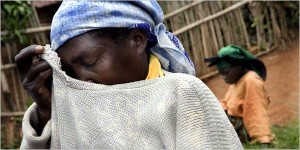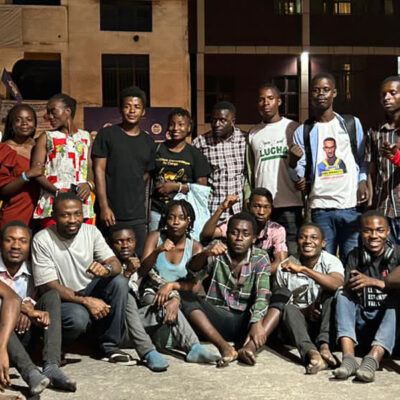 One rape every minute?! Unbelievable. And that might be underestimating how bad the situation is…
One rape every minute?! Unbelievable. And that might be underestimating how bad the situation is…
Several weeks ago, the New York Times published a shocking article on the massive prevalence of rape and sexually-based violence in the Democratic Republic of Congo (DRC). The article cites a new study in the American Journal of Public Health that describes the astounding number of rapes that occur throughout the DRC and speculates that thousands upon thousands cases of rape go unreported every year. Senior UN officials are calling the DRC the “rape capital of the world.”
How does a country that had so much promise at one point, endowed with more valuable minerals the rest of Africa combined, end up as the rape capital of the world? Yes, there has been terrible fighting in the country for year and years. Many people even argue that the conflict in DRC has been the most deadly war since World War II. But there have been other wars and conflicts where rape does not become this widespread in such a sustained manner. Other people will even argue that the DRC has a rape culture—meaning that rape has become so common place that it is now an accepted part of life.
In our opinion, this is only half the story. There’s a larger context to consider:
1) In the areas where the country’s natural resources lie, there is ongoing insecurity despite the fact that the DRC is host to the UN’s largest peacekeeping operation in the world;
2) Very few rapists in the DRC are prosecuted, which sends a message that rape is an accepted, normative behavior;
3) It is well-reported that rape has been and continues to be used by soldiers (government forces and foreign militias) as a weapon of war, i.e. a means to gain power, and perhaps more importantly to its perpetrators, to control of the minerals under the DRC’s soil.
Armed perpetrators used this last tactic as a psychological method of humiliating and breaking down families in areas where the government is already weak. They also control economic resources, lucrative mines and transport routes. Using rape as a weapon of war has no precedent in Congolese culture. Much to the contrary, the culture (though patriarchal in structure), respects women and prioritizes women’s roles in birthing children and nurturing families.
So, before we rush to hasty conclusions and peg the DRC as a country whose culture views women as sexual objects, it’s important to reflect on the compounding effect of the three leading factors described above.
In spite of this desperate situation, a large number of women, girls and men have stood up and taken matters into their own hands. These groups (some are funded by AJWS – but because of the group’s security concerns, we do not publicize specifics about their work) are providing firsthand emergency support to numerous victims of torture, trafficking and sexual violence. They are organizing their community members to come forward and denounce perpetrators, regardless of their relationships with the victims. When all else fails, as you might expect, they call upon the international community – and that is where you can help.
The Enough Project to End Genocide and Crimes Against Humanity is leading an effort to begin implementing a certification system for minerals coming from DRC that will let consumers know that their earrings, necklaces, or parts of their cell phones, TVs, or computers (all things that use minerals from the DRC) have not contributed to rape and conflict in the country. Certification of minerals has worked in the past with diamonds (the Kimberly Process ensured that consumers did not buy “blood diamonds”) and it could have a huge effect in DRC if it is implemented promptly.
Please write Secretary of State Clinton a letter in support of the certification campaign and in solidarity with the countless victims of rape, sexual violence and torture in the DRC.

